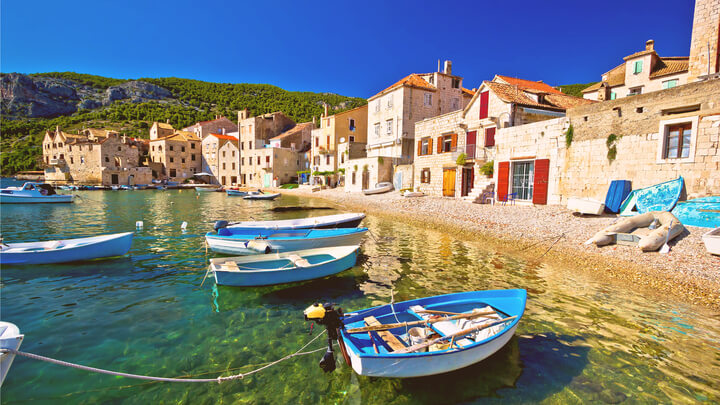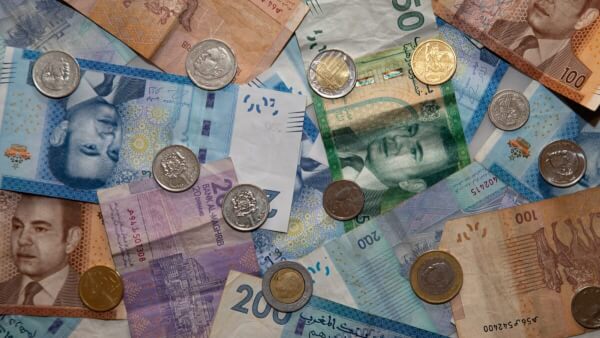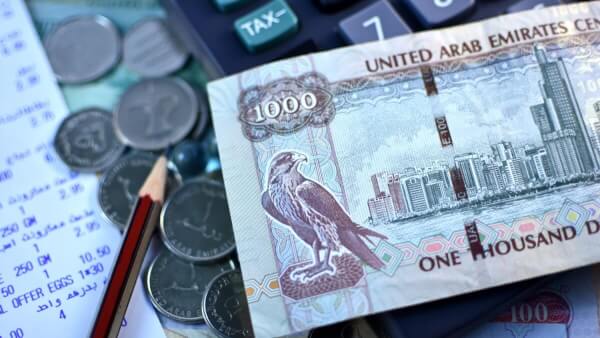Starling Bank limits: transfers, withdrawal, spending
Read our guide to Starling Bank limits on UK and international transfers, ATM withdrawals and card spending for personal customers.

If you’re considering a move to Croatia for work, study or to settle permanently, you’ll have a number of things on your to-do list. One of your priorities will be opening a bank account, but how easy is it?
To help with your move, we’ve put together a handy guide on opening a bank account in Croatia. This includes all you need to know about the process and documents you’ll need, along with fees, details of Croatian banks and much more.
And don’t forget that a traditional bank isn’t your only option when moving abroad. The Wise multi-currency account is tailor-made for expats and international students, letting you manage your money in 50 currencies including GBP and EUR.
You can send and receive money internationally for low fees and fair exchange rates, and even spend in EUR as soon as you arrive using the Wise international debit card. It’s easy to open and run your account online.
But for now, let’s focus on how to open a bank account in Croatia, starting with the paperwork.
Please see Terms of Use for your region or visit Wise Fees & Pricing for the most up to date pricing and fee information
The good news is that generally speaking, opening a bank account in Croatia is pretty straightforward. You shouldn’t need a pile of documentation either.
The requirements can vary between banks, but here’s what you should have ready¹:
If you don't have a residency permit, don’t worry. You should still be able to open an account, but it will be classified as a ‘non-resident account’¹.
You'll still need to have an OIB, or ‘personal identification number’¹. This comes from the Ministry of Finance and is required for anyone who plans to bank, buy property, start a business or live in Croatia.
A number of banks in Croatia will require you to visit a branch in person to open your account. However, there are a handful of banks which will allow you to open your account online.
This includes Raiffeisen Bank, whose Flexi current account can be opened online in a few simple steps. Here’s what you’d need to do²:
If you’ve not yet moved to Croatia, you might be wanting to get a jump-start on essential tasks like opening your new bank account.
In theory, you should be able to open a bank account from abroad, but only if the bank accepts online applications. If you don’t have a resident permit, you’ll be limited to ‘non-resident’ accounts only.
You may also run into difficulties if you don’t yet have your OIB, or ‘personal identification number’.
If all this sounds like a bit of a hassle, you’ll be pleased to know that there is an easier way.
You can open a Wise international account online while still in the UK, in just a few simple steps¹⁸.
And you can start using it even before you arrive in Croatia. You can send money worldwide with Wise, for low fees and the mid-market exchange rate. This makes it ideal for covering those initial moving costs, such as paying rental deposits, visa application charges or university tuition fees.
You can even get your own Wise multi-currency debit card, which you can use in both the UK and Croatia. This gives you a way to cover your initial expenses when you first arrive in the country.
So, what account types are available in Croatia, and how easy is it to open one as a UK expat? Let’s take a look.
As we’ve mentioned, you may only be eligible for non-resident accounts until you get your Croatian residency permit.
However, a non-resident account can still offer all the basic banking services you need as a new arrival.
For example, at OTP Bank Croatia, there’s a dedicated non-resident account which lets you freely deposit and withdraw cash in the local or foreign currency. You’ll be able to use mobile banking, ATMs and much more, although some restrictions may apply to foreign currency transactions³.
Once you get hold of your residency permit, you’ll have access to most of the same accounts as a Croatian citizen.
This includes current accounts, foreign currency accounts, savings, cards and student accounts - which we’ll look at next.
A number of Croatian banks including OTP Bank Croatia and Zagrebačka Banka offer accounts aimed at students and young people.
The common feature of these student accounts is fee-free banking and an included debit card. Some may also offer additional features such as access to a student loan.
If you’re staying in Croatia for a while, it could be a good idea to open a savings account to earn interest on your money.
Most banks offer savings accounts, which come in a few different varieties. This includes easy access and fixed terms savings accounts, along with annuity savings and pension arrangements.
There are a large number of banks to choose from in Croatia, including foreign-owned international banks.
But which is the most expat-friendly? Let’s run through a few of your options as a new arrival, including some of the biggest banks in Croatia.
Raiffeisen Bank is a major international bank headquartered in Austria, but which has 62 branches across 36 cities in Croatia⁴. It offers:
One of the leading banks in Croatia, Zagrebačka Banka serves millions of customers worldwide. In Croatia, it has 108 branch locations and around 868 ATMs nationwide⁶. It offers:
OTP Bank is the fourth largest in Croatia, with over 100 branches⁹ across the country. Part of the Hungarian Bank financial group, it serves both individual and business customers. Here’s what’s on offer at OTP:
Privredna banka Zagreb (PBZ) is another of Croatia’s top banks, with its headquarters in the country’s capital. It has nearly 150 branches¹⁰ across the country and its borders. It offers:
Lastly, there’s Erste Bank (Erste & Steiermärkische Bank). It’s one of the three largest banks in the country, with around 114 branches and 720 ATMs nationwide¹³. It offers personal and business banking, with products and services including:
Banks in Croatia are made up of local and international banks, with a larger-than-average concentration of foreign-owned banks than in other parts of Europe. The banking system has also recently undergone a major change - with the national currency changing from Croatian kuna (HRK) to the euro (EUR)
Most banks in the country offer access to your money via online and mobile banking. If you want to visit a branch in person, you’ll generally find them open between 8am and 8pm, Monday to Friday. Some bank branches may even offer weekend opening hours¹⁵.
Transfer times for payments can vary, although banks tend to be quite slow when it comes to sending money internationally. If you need an easier, faster solution, check out Wise.
With Wise, you can send money worldwide in just a few clicks or taps - and it’s all done online. Wise only charges low fees and you’ll always get a fair exchange rate, so it could even save you money compared to using a bank.
Many ATMs will limit your withdrawal to 2,000 kuna each day. ATMs with a ceiling of 3,000 kuna are out there, but aren’t easy to find. The Hrvatska Posta office allows you to withdraw up to 6,000 kuna per day, as long as you have your debit card and passport or official ID.
If you withdraw money from an ATM that's out of your network, you can expect to pay a nominal fee. Most Croatian bank accounts offer foreign exchange, and charge per transaction. Fees do vary by transaction size and by bank.
Now, how much does it cost to bank in Croatia?
Unfortunately, Croatian banks don’t always make it easy to find their fees, with limited information available in English on their websites. So, you may need to contact your chosen bank to find out specific costs and charges related to a particular account.
Some current accounts come with a monthly maintenance charge, although this is often quite low - usually around €1-2 EUR a month. Dedicated student accounts are often fee-free. Credit cards tend to come with an annual fee, which increases for cards with more perks and rewards attached.
Banks may also charge you fees for other services, such as using your debit or credit card abroad.
If you want to make payments or spend internationally, Wise could be a cheaper alternative. For a one-time fee of just £7, you’ll get an international card for use in 175 countries including the UK and Croatia. You can also send money overseas at the mid-market exchange rate, with fees starting from just 0.41%¹⁷.
You could even make your money go further by investing with Wise Assets (although remember that there’s always a risk with investing)¹⁶.
Sources used:
Sources last checked on date: 21-Feb-2023
*Please see terms of use and product availability for your region or visit Wise fees and pricing for the most up to date pricing and fee information.
This publication is provided for general information purposes and does not constitute legal, tax or other professional advice from Wise Payments Limited or its subsidiaries and its affiliates, and it is not intended as a substitute for obtaining advice from a financial advisor or any other professional.
We make no representations, warranties or guarantees, whether expressed or implied, that the content in the publication is accurate, complete or up to date.

Read our guide to Starling Bank limits on UK and international transfers, ATM withdrawals and card spending for personal customers.

Find out how to open a Starling Bank account online in the UK with our comprehensive guide, covering eligibility, requirements and how to get started.

A list of the top 10 banks in Morocco, including CIH Bank, Attijariwafa Bank, Bank of Africa and Al Barid Bank.

A list of the top 10 banks in Dubai, including Emirates NBD, First Abu Dhabi Bank, Mashreq Bank, RAKBANK and HSBC UAE.

Looking to open a new bank account? Read our Halifax Reward current account review and find out everything you need to know.

Read our comprehensive guide to the best USD accounts in the UK, including features, fees and everything else you need to know.